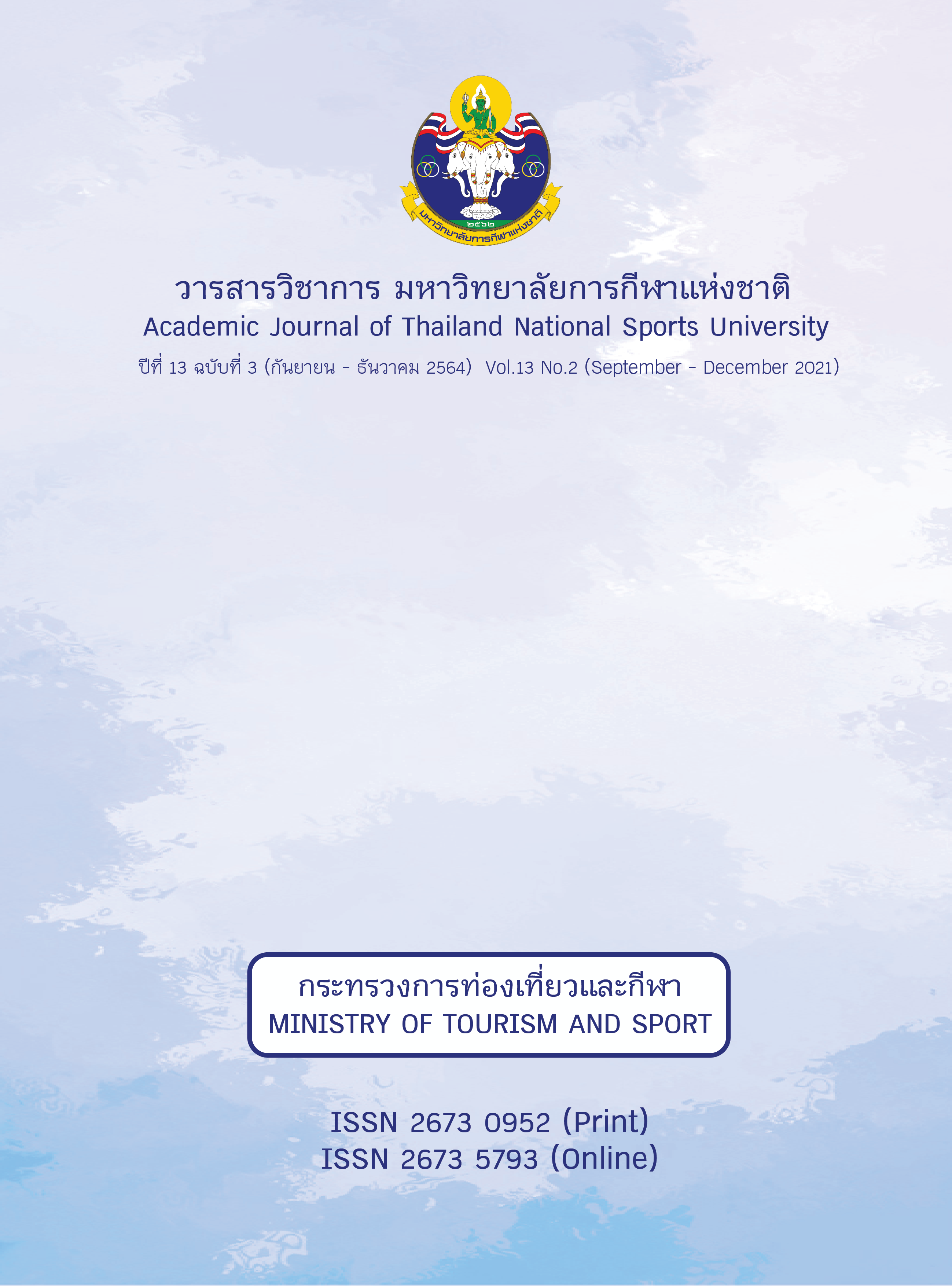PROPOSED GUIDELINES OF DEVELOPING THE HEALTH EDUCATION PROGRAM BASED ON CONSTRUCTIONISM CONCEPT AND HEALTH BELIEF MODEL FOR ENHANCING HEALTH LITERACY ON HEALTH PRODUCTS OF VOCATIONAL EDUCATION STUDENTS
Main Article Content
Abstract
Proposed guidelines of developing the health education program were based on constructionism concept and health belief model for enhancing health literacy on health products of vocational education student. Learning constructionism concept consisted 3 steps of learning activities that are put into practice: 1) Connection 2) Construction 3) Communication and health belief model comprised 5 components of personal factors 1) Perceived Susceptibility 2) Perceived Severity 3) Perceived Benefits 4) Perceived Barriers and 5) Cues to Action as a guideline for developing the process of 1. Education 2. Connection 3. Construction and 4. Presentation.
The health education program consisted of health environment management, health service provision and health education, developed from the analysis and synthesis of the accepted and wellknown theories in health education, Vocational Health Education Curriculum and Constructionism concept. Health belief model, Health literacy and related research as a guideline for the development and organizing activities for vocational students were used to develop vocational students with intelligence to be able to access and understand health information products and use of accurate health information. (Regarding the use of health products)
Article Details
The published article is a copyright of the Academic Journal of Thailand National Sports University. The passage appeared in each article in this academic journal is a perspective of each author which is not related to the journal. Each author is required to be responsible for all components of his/her own article. If there are any mistakes, each author must be responsible for those mistakes on his/her own.
References
Chai-Anan Samudavanija. (1999). Concept: What is a constructionism. The Journal of the Royal Institute of Thailand, 24(1), 137 - 144.
Druin, A., & Solomon, C. (1996). Designing multimedia environments for children: Computers, creativity, and kids. New York: John Wiley & Sons.
Guzdial, M. (1997). Constructivism vs. Constructionism. Retrieved from http://www.quzdial.cc.qatech.edu/commentary/construct.html
Hay, K, E. & Barab, S, A. (2001). Constructivism in practice: A comparison and contrast between apprenticeship and constructionist learning environments. The Journal of the Learning Sciences, 10(3), 281-322.
Mancuso, J.M. (2009). Assessment and measurement of health literacy: An integrative review of the literature. Nursing and Health Sciences, 11, 77 - 89.
Papert, S. (1980). Mindstorms: Children, computer and powerful ideas. NY: Basic Books.
Papert, S. (1984). New theories for new learning. School Psychology Review, 13(4), 422 - 428.
Papert, S. (1999). What is Constructionism? Retrieved from http://lynx.dac.neu.edu/k/krudwall/constructionism.html
Pimpan Dechakupt & Payao Yindeesuk. (2005). 5C Skills for Develop Learning Unit and Integrated to Learning management. Bangkok: Chulalongkorn Publishing.
Prapapen Suwan & Swing Suwan. (1993). Behavioral Sciences Health Behavior and Health Education. Bangkok: Chao Phraya Publishing.
Rittigrai Tulavantana. (2002). The strategic development for organizing instructional system based on constructionism of Thai Higher Education Institutions (Doctoral dissertation), Chulalongkorn University.
Smith. (2004). Review of Adult Learning and Literacy. V.7.Mahwah, NJ: Lawrence Erlbaum Associates.
Suchin Petchrak. (2001). Constructionism in Thailand: Research paper. Bangkok: Office of National Education Commission.
World Health Organization. (1998). Health Promotion Glossary. Switzerland: WHO Publications.
World Health Organization. (2009). Health Literacy and Health Promotion. Definitions, Concepts and Examples in the Eastern Mediterranean Region. Individual Empowerment Working Document. 7th Global Conference on Health Promotion Promoting Health and Development. Nairobi, Kenya.


